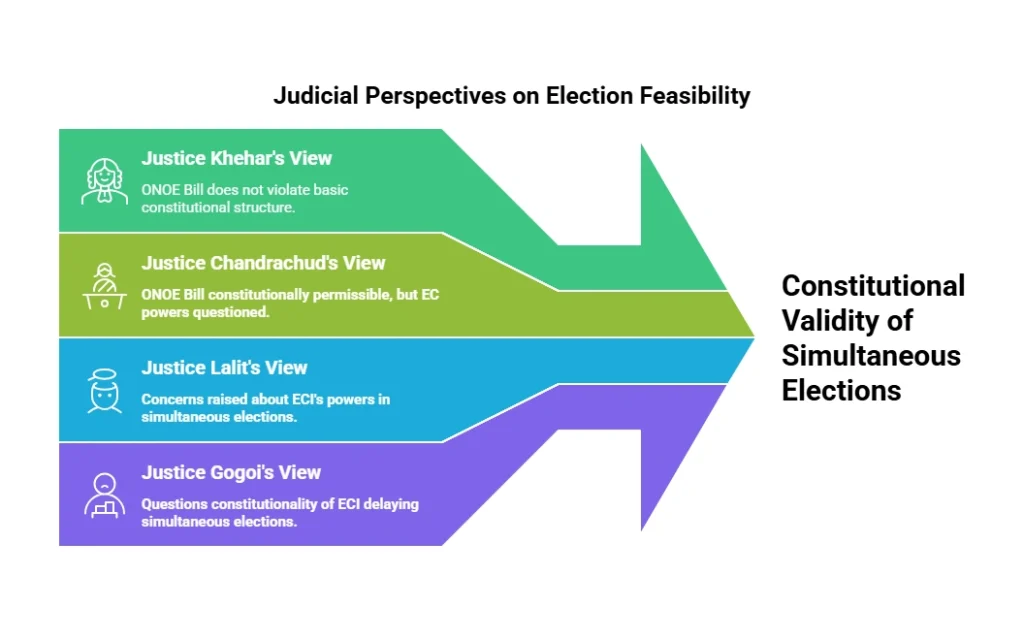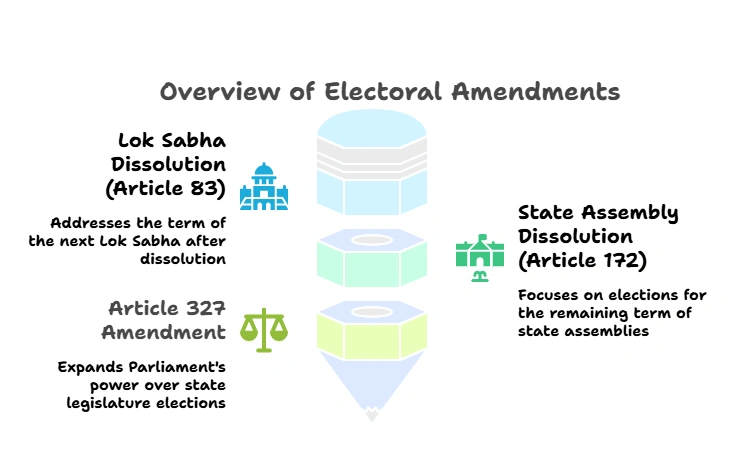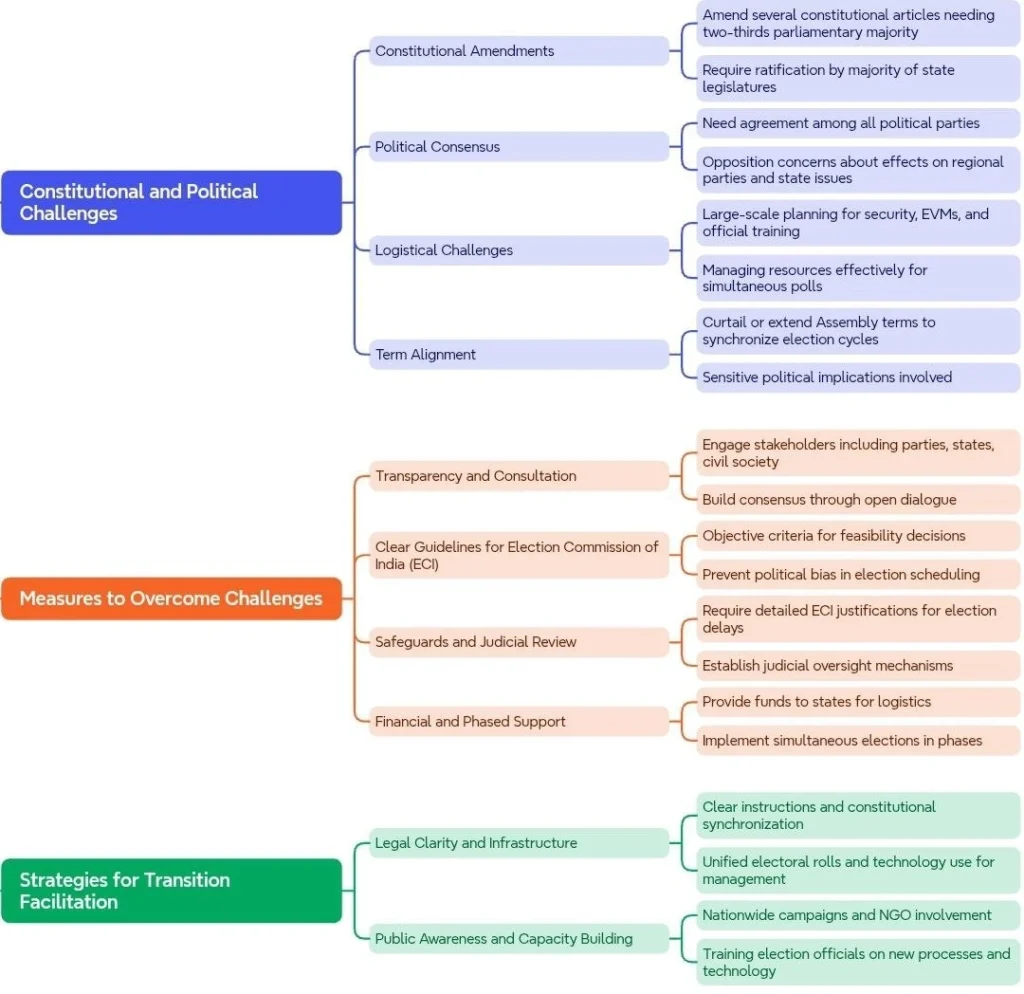Paper: GS – II, Subject: Polity, Topic: Elections and RPA, Issue: One Nation, One Election” (ONOE) Bill.
Context:
The concerns raised by former Chief Justices of India (CJIs) regarding the proposed “One Nation, One Election” Bill (ONOE Bill).
- While the ex-CJIs generally agree that holding simultaneous elections is constitutional and does not violate the basic structure of the Constitution, they have expressed reservations about the sweeping powers granted to the Election Commission of India (ECI) in the Bill, particularly concerning the ability to delay elections in certain states.

Key Takeaways:
| The government-initiated steps towards implementing “One Nation, One Election” by introducing two Constitution Amendment Bills namely One Nation One Election ‘The Constitution 129th Amendment Bill 2024’ Simultaneous elections in India, where both Lok Sabha and state assembly elections were held together, took place from 1951 to 1967. What are the Key Features of the Bills? One Nation, One Election ‘The Constitution 129th Amendment Bill 2024′: The bill proposes adding Article 82A (1-6) to the Constitution to align the terms of the Lok Sabha and State Assemblies, as recommended by the committee headed by former President Ram Nath Kovind. Article 82 (1-6): 82A (1) provides for the timeline for the President to bring into force the proposed changes on the date of the first sitting of the Lok Sabha after a general election, designating this as the “appointed date.” 82(2) states that the terms of all state Assemblies elected after the appointed date and before the Lok Sabha’s full-term ends will conclude with the Lok Sabha’s term. Article 82A (3) states that the Election Commission of India (ECI) shall conduct general elections to the House of the People and all Legislative Assemblies simultaneously. Article 82 A (4) defines simultaneous elections as “general elections held for constituting the House of the People and all the Legislative Assemblies together”. Article 82A (5) gives the ECI the option of not holding any particular Assembly election along with the election to Lok Sabha. The ECI can advise the President to issue an order allowing elections for a Legislative Assembly to be held at a later date. Article 82A (6) states that if an Assembly election is deferred, the full term of that Assembly will also end with the full term of the Lok Sabha elected in the general election. |

Challenges and Measures for Implementing Simultaneous Elections:

Conclusion:
The concerns raised by the former CJIs highlight the need for careful consideration of the potential legal and constitutional implications of the ONOE Bill. While the concept of simultaneous elections may be constitutionally permissible, the sweeping powers granted to the ECI under the proposed legislation raise concerns about federalism, the autonomy of state governments, and the potential for abuse.
La Excellence IAS Academy, the best IAS coaching in Hyderabad, known for delivering quality content and conceptual clarity for UPSC 2025 preparation.
FOLLOW US ON:
◉ YouTube : https://www.youtube.com/@CivilsPrepTeam
◉ Facebook: https://www.facebook.com/LaExcellenceIAS
◉ Instagram: https://www.instagram.com/laexcellenceiasacademy/
GET IN TOUCH:
Contact us at info@laex.in, https://laex.in/contact-us/
or Call us @ +91 9052 29 2929, +91 9052 99 2929, +91 9154 24 2140
OUR BRANCHES:
Head Office: H No: 1-10-225A, Beside AEVA Fertility Center, Ashok Nagar Extension, VV Giri Nagar, Ashok Nagar, Hyderabad, 500020
Madhapur: Flat no: 301, survey no 58-60, Guttala begumpet Madhapur metro pillar: 1524, Rangareddy Hyderabad, Telangana 500081
Bangalore: Plot No: 99, 2nd floor, 80 Feet Road, Beside Poorvika Mobiles, Chandra Layout, Attiguppe, Near Vijaya Nagara, Bengaluru, 560040
